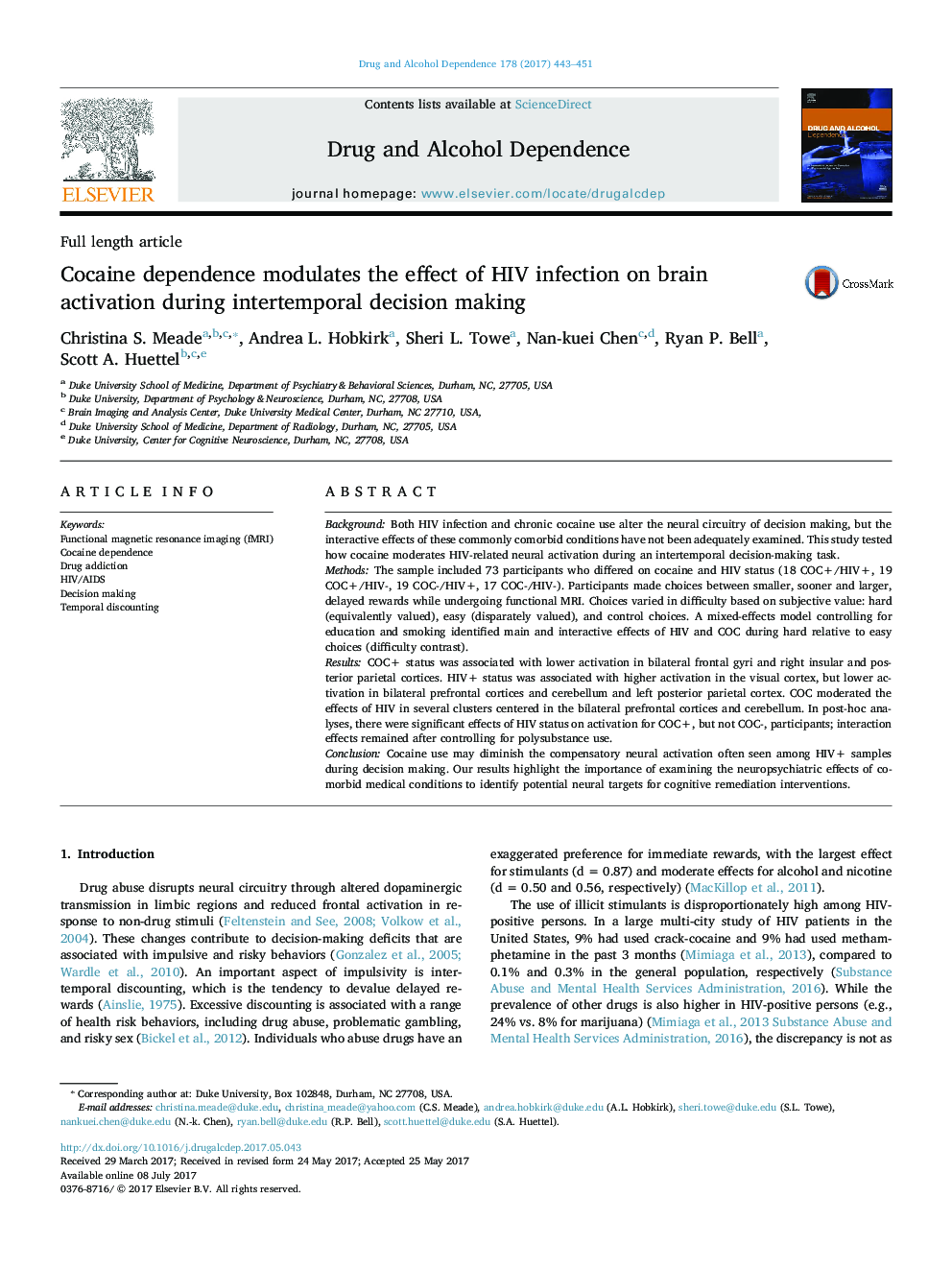| کد مقاله | کد نشریه | سال انتشار | مقاله انگلیسی | نسخه تمام متن |
|---|---|---|---|---|
| 5120373 | 1486113 | 2017 | 9 صفحه PDF | دانلود رایگان |

- HIV infection and chronic polydrug abuse are commonly comorbid conditions.
- Although mechanisms differ, decision making is deficient in both conditions.
- We used an fMRI decision task to examine neural main and interactive effects.
- Cocaine dependence moderated neural function of decision making in HIV infection.
- HIV+ polydrug cocaine users may be prone to decisions with harmful consequences.
BackgroundBoth HIV infection and chronic cocaine use alter the neural circuitry of decision making, but the interactive effects of these commonly comorbid conditions have not been adequately examined. This study tested how cocaine moderates HIV-related neural activation during an intertemporal decision-making task.MethodsThe sample included 73 participants who differed on cocaine and HIV status (18 COC+/HIV+, 19 COC+/HIV-, 19 COC-/HIV+, 17 COC-/HIV-). Participants made choices between smaller, sooner and larger, delayed rewards while undergoing functional MRI. Choices varied in difficulty based on subjective value: hard (equivalently valued), easy (disparately valued), and control choices. A mixed-effects model controlling for education and smoking identified main and interactive effects of HIV and COC during hard relative to easy choices (difficulty contrast).ResultsCOC+ status was associated with lower activation in bilateral frontal gyri and right insular and posterior parietal cortices. HIV+ status was associated with higher activation in the visual cortex, but lower activation in bilateral prefrontal cortices and cerebellum and left posterior parietal cortex. COC moderated the effects of HIV in several clusters centered in the bilateral prefrontal cortices and cerebellum. In post-hoc analyses, there were significant effects of HIV status on activation for COC+, but not COC-, participants; interaction effects remained after controlling for polysubstance use.ConclusionCocaine use may diminish the compensatory neural activation often seen among HIV+ samples during decision making. Our results highlight the importance of examining the neuropsychiatric effects of comorbid medical conditions to identify potential neural targets for cognitive remediation interventions.
Journal: Drug and Alcohol Dependence - Volume 178, 1 September 2017, Pages 443-451